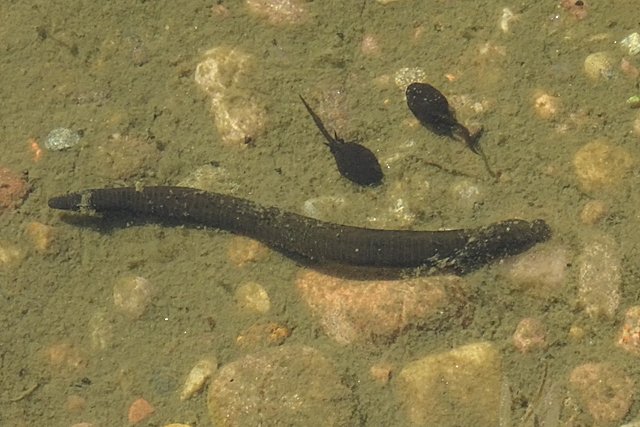Scientist Exploring Invertebrate Derived DNA to Save Endangered Animals
I am very sure nobody will be happy to jump on a leech because trust me, that specie of animal isn't picky when it wants to suck on blood. You can imagine that a leech has blood of about 3 to 5 people or even from variety of species. Actually, all you need to do is have blood, and trust me if there is a leech around, it would find you.
As terrible as this organism might look, it has a few benefits and I will be looking at one which has to do with helping scientists protect endangered species. We have a lot of endangered species and in other to find these species, scientist go extreme where they use camera to monitor them and they can also collect samples from the organisms but in all these, scientists are also able to get information about these species by collecting environmental DNA from soil and water samples after which they use barcoding to identify them.
Asides these methods I have mentioned, one method that scientists use is also checking for this eDNA from the belly of leeches. Leeches are animals that get their nutrition from sucking blood of other animals and you would expect that as they suck from different organisms, there shouldn't be remnants of blood in them but actually, there aren't remnants of blood in them, rather they digest this blood very slowly thereby allowing the blood to stay for a long time in their body and this is what scientists investigate upon since DNA test can help us identify which specie they fed upon.
From my study I came across a 2012 study where Researchers studied leeches in Vietnam. Through the study a process known as invertebrate derived DNA. They were able to find DNA of animals that they have not been able to see on camera in the blood of the leeches that were studied. Animals like the Annamite Striped rabbit. This method of identifying endangered specie is not difficult since leeches are easy to find because they go around looking for food.
In 2018, about 700 leeches were gotten in South East Asia, and scientists were able to identify dozens of species of birds and mammals. They were able to find DNA of animals thereby allowing them to know where these animals reside, their rarity, and how to focus on conservation. Also, the availability of the leeches in regions show how endangered lots of animals are. A study in China showed that some leeches were less common in areas of human activities were immerse. Also a study in Borneo also found similar results in patterns as leech-derived DNA didn't show high widelife activity like in places such as forests.
You would think that these leeches are terrestrial blood sucking organisms but you will be surprise to know that they find their way into waters as well. In 2022, a sample parasitic and predatory leeches were examined, and found the gut DNA of fishes in them. Asides that, they also had DNA of insects, and even other leeches.
For now, it looks like it would be a possible help for scientists in helping to learn about a few endangered life but then, there is still a lot to learn about leeches including how far they can migrate after eating, making it difficult to identify the distribution and precision of these wildlife.
Reference
https://www.tandfonline.com/doi/full/10.1080/14772000.2018.1433729
https://www.sciencedirect.com/science/article/pii/S0960982212002096
https://www.ncbi.nlm.nih.gov/pmc/articles/PMC9292958/
https://news.mongabay.com/2018/03
https://www.scientificamerican.com/article/traces-elusive-species-sought-leech-dna/
https://www.ncbi.nlm.nih.gov/pmc/articles/PMC8359290/


Sending love and curation Ecency vote. keep giving the best♥️
Follow Eceny's curation trail to earn better APR on your own HP.
Thanks for your contribution to the STEMsocial community. Feel free to join us on discord to get to know the rest of us!
Please consider delegating to the @stemsocial account (85% of the curation rewards are returned).
Thanks for including @stemsocial as a beneficiary, which gives you stronger support.